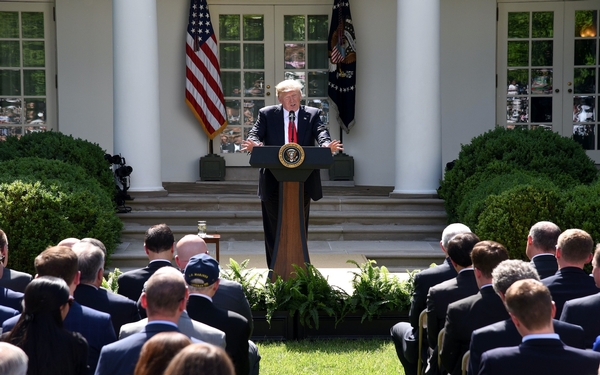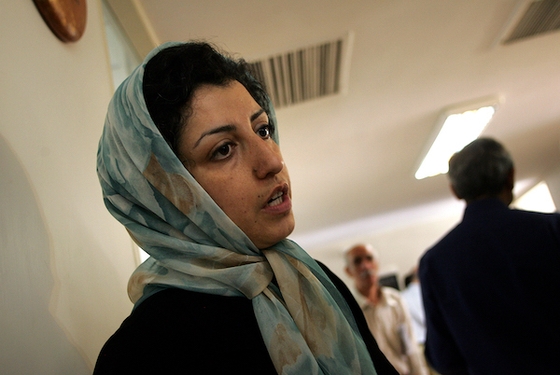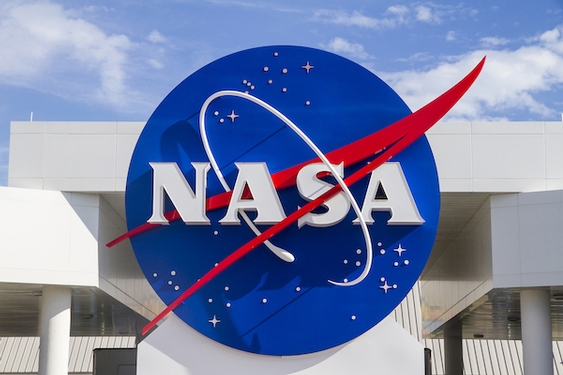The U.S. will pull out of the Paris accord on global warming, President Donald Trump announced Thursday, relinquishing the country’s leadership role in the international fight against climate change.
The move will not fully take effect for four years, under the terms of the agreement. During that time, Trump said, he hopes to negotiate a new agreement “on terms that are fair to the United States.”
The Paris agreement is a “massive redistribution of United States wealth to other countries,” Trump told an audience of administration officials and supporters gathered in the White House Rose Garden. It was “less about the environment” than about other countries getting an “unfair advantage” over the U.S., he added.
The accord would allow China, India and other major polluters to continue emitting greenhouse gases while imposing unfair burdens on the U.S., Trump said, maintaining that it would cost the U.S. millions of jobs.
Supporters of the agreement, which include many Republican business leaders as well as environmental activists, say just the opposite — that steps to combat global warming would help the U.S. economy by building up new industries, especially solar and wind power.
The agreement, which almost every country in the world has joined, is designed to cut emissions of carbon dioxide and other greenhouse gases in order to keep temperatures from rising by more than 2 degrees Celsius compared with pre-industrial levels. That’s the point at which climate scientists warn the impact of climate change worldwide would be severe.
How much the U.S. leaving the accord will impede achieving that goal remains to be seen. Technological and economic changes have steadily made solar and wind power less expensive, and the U.S. was already on a path to meet many of the commitments made in Paris, amid the boom in electricity from natural gas and the plunge in prices for solar and wind power.
But the departure of the world’s biggest economy is certain to disrupt international plans to combat global warming. The U.S. will now join the only two other nations that refused to sign on, Syria and Nicaragua. The Central American nation complained that the accord wasn’t stringent enough.
The move may also harm the growing U.S. clean-energy industry, which may now see China and Europe take the lead in developing advanced technologies.
President Barack Obama, who helped rally almost every nation in the world to reach the Paris agreement in 2015 had hailed it as one of his signature accomplishments.
But Trump had pledged during his campaign to scrap the agreement, calling it a bad deal for the U.S.
Outside economists have said the cost to the U.S. of staying in the accord would have been minimal, as it allowed flexibility to adjust targets. Keeping the treaty intact would not have prevented the administration from rolling back some of Obama’s ambitious domestic climate programs, they said.
But some conservatives warned that environmental activists could use the agreement as a way to block the administration from its efforts to dismantle Obama’s policies.
———
©2017 Tribune Co.
Visit Tribune Co. at www.latimes.com
Distributed by Tribune Content Agency, LLC.












